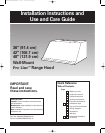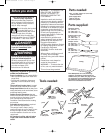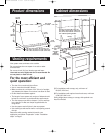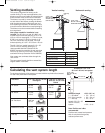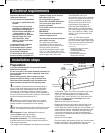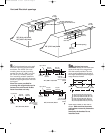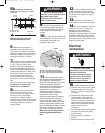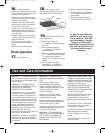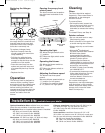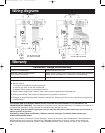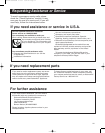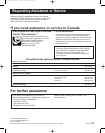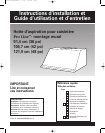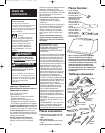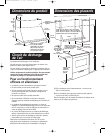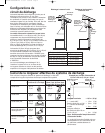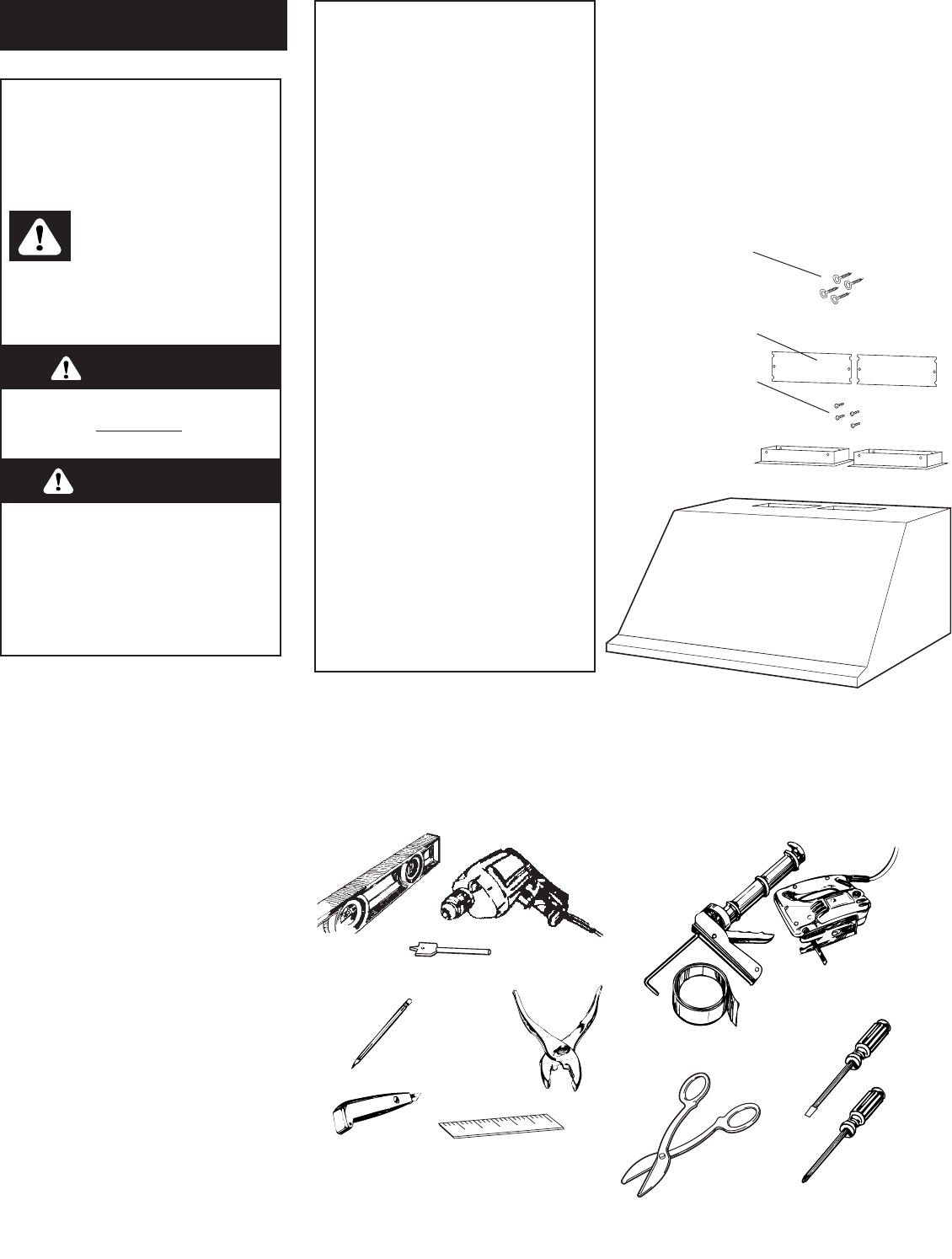
Before you start...
Proper installation is your responsibility:
• Have a qualified technician install this
range hood.
• Comply with installation clearances
specified on the model/serial rating
plate.
The model/serial rating plate is located
inside the range hood on the rear wall.
Range hood location should be away from
strong draft areas, such as windows, doors
and strong heating vents.
Cabinet opening dimensions that are
shown must be used. Given dimensions
provide minimum clearance. Consult
your cooktop/range manufacturer
installation instructions before making
any cutouts.
Grounded electrical outlet is required.
See “Electrical requirements.”
The canopy hood is factory set for
venting through the roof or wall. To vent
directly through the wall, the blower
must be rotated to face the rear of the
range hood.
All openings in ceiling and wall where
range hood will be installed must be
sealed.
Important: Observe all governing
codes and ordinances.
This is the safety alert symbol.
This symbol alerts you to
potential hazards that can kill
or hurt you and others. All safety
messages will follow the safety alert
symbol and either the word “DANGER”
or “WARNING”. These words mean:
You can be killed or seriously injured
if you don’t follow instructions.
DANGER
WARNING
Your safety and the safety of
others is very important.
We have provided many important
safety messages in this manual and
on your appliance. Always read and
obey all safety messages.
All safety messages will tell you what
the potential hazard is, tell you how to
reduce the chance of injury, and tell
you what can happen if the
instructions are not followed.
You can be killed or seriously injured
if you don’t immediately
follow
instructions.
Parts supplied:
Damper:
36” (91.4 cm) = 1
42” (106.7 cm) = 1
48” (121.9 cm) = 2
canopy
Parts needed:
2 U.L.- or C.S.A.- listed, 1/2" (12.5 mm)
conduit connectors
power supply cable
1 wall or roof cap
metal vent system
Tools needed:
Phillips
screwdriver
flat-blade
screwdriver
caulking gun and
weatherproof
caulking
compound
duct tape
metal
snips
pliers
pencil
saber or
keyhole saw
drill
1-1/4" drill bit
level
measuring
tape or ruler
wire stripper
or utility knife
WARNING — TO REDUCE THE
RISK OF FIRE, ELECTRIC
SHOCK, OR INJURY TO
PERSONS, OBSERVE THE
FOLLOWING:
Installation work and electrical
wiring must be done by qualified
person(s) in accordance with all
applicable Codes and Standards,
including fire related construction.
Sufficient air is needed for proper
combustion and exhausting of
gases through the flue (chimney)
of fuel burning equipment to
prevent back drafting. Follow the
heating equipment
manufacturer’s guideline and
safety standards such as those
published by the National Fire
Protection Association
(NFPA),and the American Society
of Heating Refrigeration and Air
Conditioning Engineers
(ASHRAE), and the local code
authorities.
When cutting or drilling into wall
or ceiling, do not damage
electrical wiring and other hidden
utilities.
Ducted fans must always be
vented to the outdoors.
WARNING — To reduce the risk
of fire, use only metal ductwork.
This unit must be grounded.
2
Mounting screws
36” (91.4 cm) = 2
42” (106.7 cm) = 4
48” (121.9 cm) = 4
Damper screws:
36” (91.4 cm) = 2
42” (106.7 cm) = 2
48” (121.9 cm) = 4
Exhaust outlet cover
36” (91.4 cm) = 1
42” (106.7 cm) = 1
48” (121.9 cm) = 2
Note: Backsplash, vent cover, discharge
transition, and chimney extension kits are
available from your dealer (see page 9).These
are required for some installations and must
be installed at time of hood installation as
shown in the Installation Instructions.
YL10564/8284829B 8/7/01 3:32 PM Page 2



